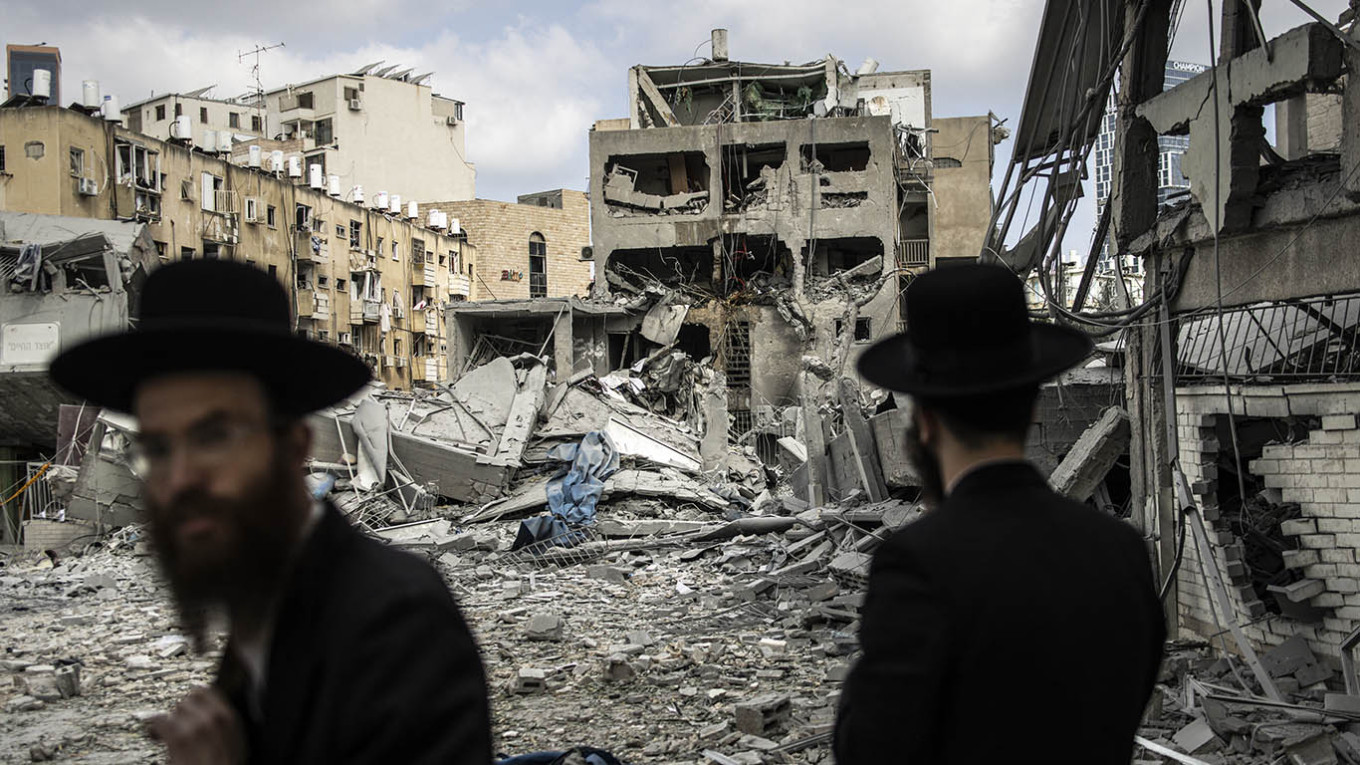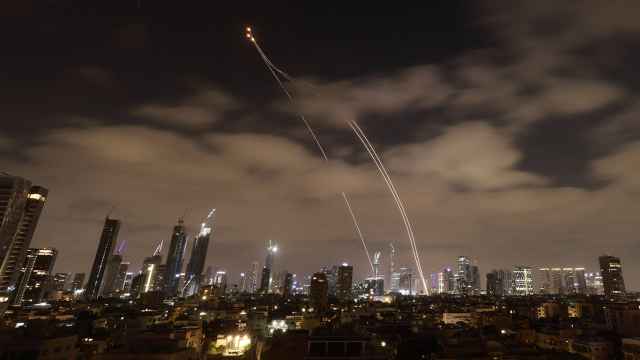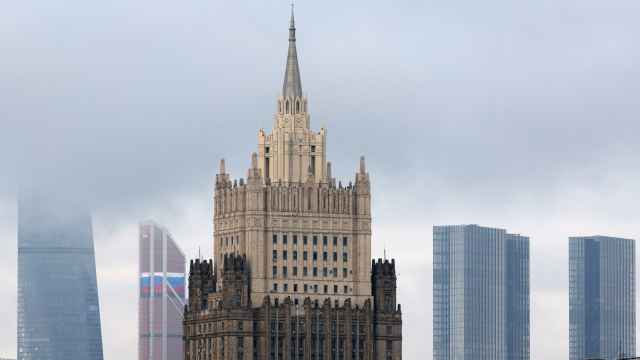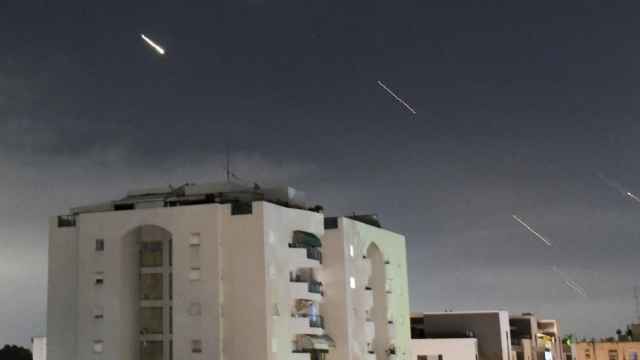The Israel-Iran conflict showed no signs of easing as it dragged into its fourth day on Monday, with both sides continuing to trade salvos of rockets and drones that have killed hundreds of civilians.
Amid the worsening tensions, Russia’s Foreign Ministry has advised its citizens to leave both Iran and Israel.
Since Moscow maintains ties to both countries, questions remain over how Russia might get involved in the conflict.
Strategic partnership?
Moscow in April ratified a strategic partnership agreement with Iran that includes provisions for both countries to counter shared threats, but crucially does not create any kind of military alliance between the two countries.
“The signing of the treaty does not mean the establishment of a military alliance with Iran or mutual military assistance,” Russian Deputy Foreign Minister Andrei Rudenko said in an address to the State Duma at the time.
So what might Russia do to aid Iran?
Hanna Notte, a Russia and Middle East expert at the Center for Nonproliferation Studies, wrote on X that Russia was likely to try to get involved through international bodies, such as the UN Security Council and International Atomic Energy Agency (IAEA).
Notte also noted that Russia would likely continue to try to play the role of mediator in the conflict, given its desire to remain an influential player in regional and global affairs. On Friday, Vladimir Putin offered up Russia as a mediator in his call with Israeli Prime Minister Benjamin Netanyahu.
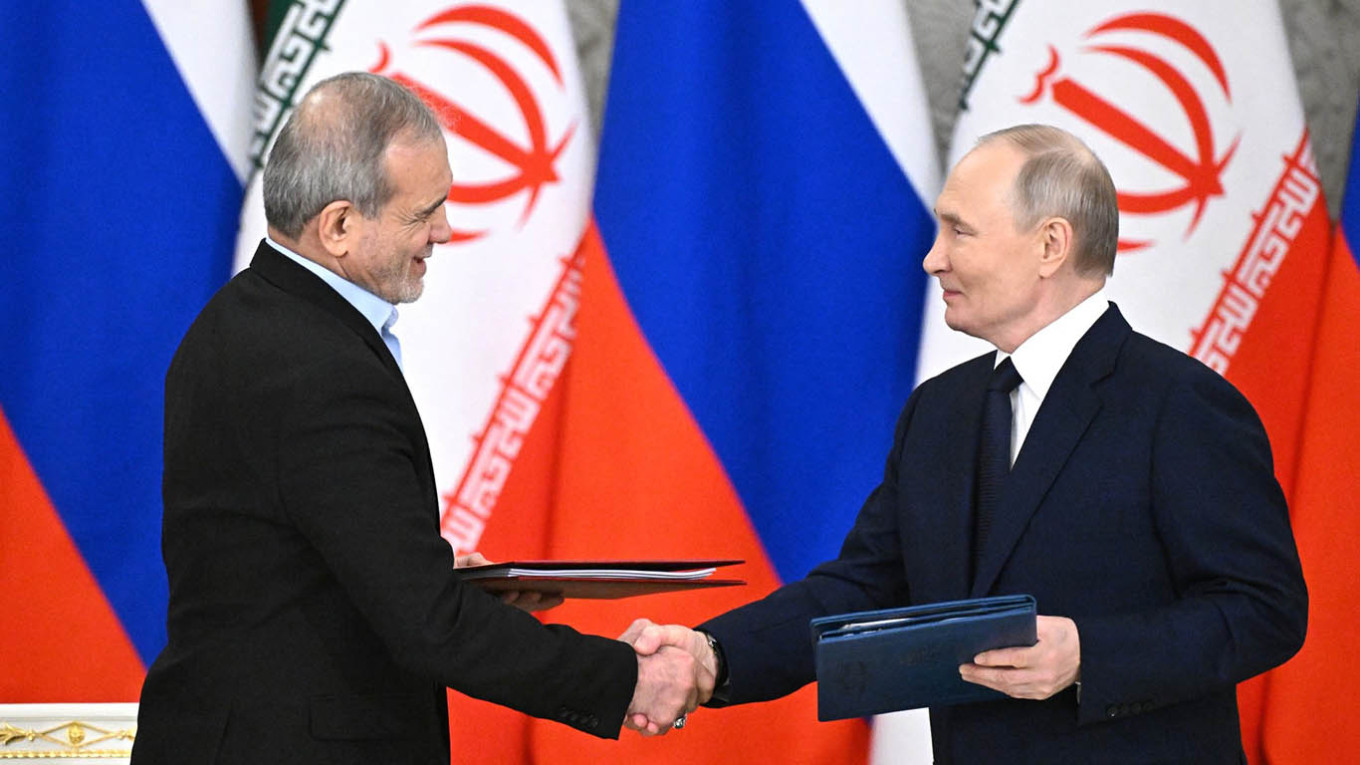
However, diplomatic success for Russia is far from guaranteed, Notte wrote in Foreign Affairs earlier this year. “The turbulence in the Middle East has proved too intense and unpredictable for Moscow to reliably steer in a favorable direction.”
Ruslan Suleymanov, a non-resident research fellow at the Institute for Development and Diplomacy at ADA University in Baku, echoed this sentiment.
“Russia's credibility in the region was undermined last year when Putin showed his weakness while not supporting Bashar al-Assad in his fight with jihadists. Putin has made clear he is no longer reliable,” Suleymanov told The Moscow Times.
“Practically, Russia could support Iran in the UN Security Council, for instance. There is no military obligation,” he said.
One area where Russia likely does not need to worry is in the supply of Iranian-designed Shahed drones that it uses to attack Ukraine.
Nicole Grajewski, a nuclear policy expert at the Carnegie Endowment for International Peace who specializes in Russia and Iran, told The Telegraph that Moscow is now capable of producing up to 2,700 drones per month without Iranian support, which it significantly relied on in the first two years of its invasion of Ukraine.
‘Unlikely to affect Russia’s relationship with Israel’
According to Suleymanov, the escalating conflict is unlikely to affect Russia’s relationship with Israel, despite Russia’s strategic partnership with Iran and Moscow’s criticism of Israeli airstrikes.
“Despite many problems and disagreements, Moscow is still interested in Israel,” he said.
Marianna Belenkaya, a Russian Middle East expert and former commentator for the state-run RIA Novosti news agency, also believes that relations between Russia and Israel are far from black and white.
For example, the two countries have maintained stable relations even as Russia has deepened its engagement with Hamas in recent years, she said.
“Israel did not break off relations with Russia, did not impose sanctions on Russia,” she said. “Therefore, I think that cooperation will continue as before, at least for now.”
Belenkaya also said she does not believe “Russia is particularly concerned about Iran's nuclear program.”
What about the Russian economy?
A prolonged confrontation between Iran and Israel could lead to a spike in global energy prices, which would provide a short-term boost to Russia's budget revenue. Complications in reaching a deal on the Iranian nuclear program may also help Moscow by further delaying the entry of Iranian oil and gas into the global — and in particular European — markets.
The escalation of tensions between Iran and Israel pushed the benchmark Brent oil price up by nearly 10% on Monday compared to the previous week, from $67 per barrel to $73.60 per barrel.
Israeli airstrikes targeting Iranian energy infrastructure, such as gas processing facilities, could limit Iran’s oil and gas output, which primarily supplies gas to neighboring countries like Turkey and Iraq, and oil to China.
While Iran’s share of global energy exports is relatively small, this could still have some impact on global oil prices.
According to the U.S. Energy Information Administration, Iran produced approximately four million barrels of oil per day in 2023, while its exports averaged 1.5 million barrels per day in 2024. Last year, Iranian oil exports accounted for just 3.6% of the global volume.
Fears among traders are driven not only by Israeli strikes on Iran but also by the potential for wider regional escalation, including disruptions to shipping routes that could impact energy supplies and trade across the region.
And yet, for the Russian economy, which relies on gas and oil revenues as a source of foreign currency and tax revenue for the government, the confrontation could have some short-term economic benefit. Disruption-driven shortages would help pad Russian oil revenues.
Iran’s share of global oil exports is significant enough that if its shipments are reduced even by half, it may noticeably raise oil prices, Russian energy analyst Igor Yushkov said.
In particular, China may turn to Russian oil if Iranian supplies decline. This would be timely, as Russia’s oil and gas revenues have been shrinking due to sanctions and fears of a potential global economic slowdown.
A protracted conflict would also delay any deal on the Iranian nuclear program, which could have resulted in the lifting of the energy embargo on Tehran and enabled Iran to supply oil and gas to the European market.
However, many analysts doubt that a large-scale disruption to the energy markets will happen.
Russian PSB bank analysts said the Middle East conflagration is unlikely to lead to a “serious disruption” and to the “closure of international transport arteries such as the Strait of Hormuz, which means that the price increase is likely to be temporary.”
The analytical note said that Brent oil prices are likely to return to the $60-65 per barrel range.
Similarly, energy analyst Kirill Rodionov predicted that any oil price hike would be short-lived due to the substantial excess oil production capacity in the Middle East, which exceeds 4 million barrels per day, surpassing Iran's production capacity.
A Message from The Moscow Times:
Dear readers,
We are facing unprecedented challenges. Russia's Prosecutor General's Office has designated The Moscow Times as an "undesirable" organization, criminalizing our work and putting our staff at risk of prosecution. This follows our earlier unjust labeling as a "foreign agent."
These actions are direct attempts to silence independent journalism in Russia. The authorities claim our work "discredits the decisions of the Russian leadership." We see things differently: we strive to provide accurate, unbiased reporting on Russia.
We, the journalists of The Moscow Times, refuse to be silenced. But to continue our work, we need your help.
Your support, no matter how small, makes a world of difference. If you can, please support us monthly starting from just $2. It's quick to set up, and every contribution makes a significant impact.
By supporting The Moscow Times, you're defending open, independent journalism in the face of repression. Thank you for standing with us.
Remind me later.




